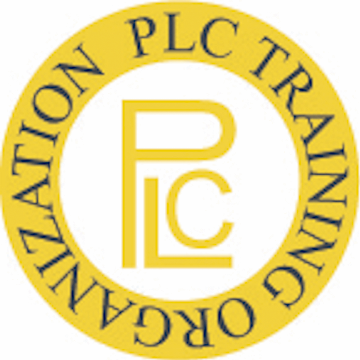About PLC This Training Organization Site
Developed to Promote PLC Training Best Practices
A second reason this best in class PLC Training learning path organizational site was created is that we find some people and PLC training providers skip one or more critical areas of PLC training. Even some community colleges, PLC vendors, and private PLC training companies completely skip the critical PLC Training Foundation criteria and do not deliver best practices. Therefore, we hope this site will help them to bridge the gap between education delivered; and what employers actually need to minimize their downtime and risk to man and machine. If you are an individual, we recommend you tell your PLC ‘training’ provider you do not want just scholastic education, you want actual training that includes best practices. Please contact us below if you have best practices to add to this site.
Importance of Practical PLC Training
Practical training in PLC programming is essential for individuals looking to excel in industrial automation. Unlike traditional education that often focuses on theoretical knowledge, practical training equips learners with hands-on experience, enabling them to apply concepts in real-world scenarios.
For instance, many employers seek candidates who can demonstrate proficiency in programming, troubleshooting, and maintaining PLC systems. By prioritizing practical training, students become more competitive in the job market, enhancing their employability and readiness for industry challenges.
Best Practices in PLC Education
Implementing best practices in PLC education ensures that learners gain the most relevant and effective skills. This includes integrating real-life projects, simulations, and case studies into the curriculum, which helps students understand the complexities of automation systems.
Moreover, continuous assessment and feedback mechanisms can significantly improve learning outcomes. For example, incorporating peer reviews and mentorship opportunities can foster a collaborative learning environment, further enhancing the educational experience and preparing students for future roles in the industry.
Resources for PLC Training
Access to quality resources is crucial for anyone pursuing PLC training. Online platforms, textbooks, and workshops provide a wealth of information that can supplement formal education and enhance practical skills.
Additionally, organizations like PLC Training Org. offer curated resources, including video tutorials, webinars, and hands-on workshops. These resources are designed to bridge the gap between theoretical knowledge and practical application, ensuring learners are well-prepared for industry demands.
Connecting with Industry Experts
Networking with industry experts can significantly benefit individuals seeking PLC training. Engaging with professionals can provide insights into the latest trends, technologies, and best practices in the field of automation.
Furthermore, mentorship programs and industry conferences offer opportunities for learners to interact with seasoned professionals, gaining valuable advice and guidance. This connection not only enhances learning but also opens doors to potential job opportunities and collaborations in the future.
